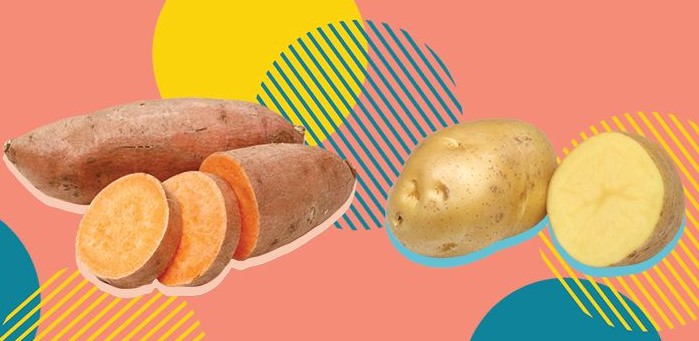Unlocking The Carb Count In Potatoes: Your Guide To A Healthy Diet

Potatoes have long been a staple in many diets around the world, loved for their versatility, affordability, and delicious taste. However, there’s a common question that often comes up for those trying to manage their carbohydrate intake: how many carbs in a potato? Knowing how many carbohydrates potatoes contain will assist anyone trying to keep up a healthy lifestyle make wise choices while still enjoying this popular meal.
The Basics Of Carbs In Potatoes
Carbohydrates are an essential nutrient, serving as the body’s primary source of energy. Potatoes, like many vegetables, are rich in carbs, but that doesn’t necessarily mean they should be avoided. Knowing the carbohydrate content and how it fits into your total dietary requirements is crucial.
On average, a medium-sized potato (about 150 grams) contains around 30 grams of carbohydrates. The type of potato and preparation method can have a modest impact on this figure. For example, a baked russet potato might have slightly more carbs, while a boiled or steamed potato may retain fewer calories due to water content. Sweet potatoes, often seen as a healthier alternative, contain slightly more carbohydrates at around 37 grams per medium potato, but they also offer additional fiber and nutrients.
Why Carbs In Potatoes Are Beneficial?
When measuring carbohydrates, it’s simple to become fixated on the numbers, but it’s crucial to keep in mind that not all carbohydrates are made equal. The carbs in potatoes are a combination of starches and fiber, which are digested differently by the body.
Potatoes provide complex carbohydrates, which are a great source of long-lasting energy. Unlike simple carbohydrates that cause rapid spikes in blood sugar, complex carbs digest slowly, providing steady energy throughout the day. This makes potatoes an excellent food for anyone who needs sustained energy, like athletes or those with active lifestyles.
Additionally, potatoes are a great source of important vitamins and minerals. Their potassium, vitamin B6, and vitamin C content helps maintain heart health, brain function, and immunity. Additionally, their fiber content helps support digestive health by regulating bowel movements and keeping you feeling fuller for longer.
Incorporating Potatoes Into A Balanced Diet
Understanding the carb count in potatoes can help you make better decisions when incorporating them into a balanced diet. Rather than avoiding potatoes entirely, it’s about mindful portion control and preparation.
Baking, boiling, or steaming potatoes is one of the healthiest ways to eat them. These cooking methods preserve the nutrients without adding excess fat or calories. By avoiding fried or heavily buttered potato dishes, you can maximize their nutritional value without consuming extra, unnecessary calories. Pairing potatoes with lean proteins and vegetables can also help balance out the carbs and provide a well-rounded meal.
For those on specific low-carb diets, like keto or Atkins, potatoes might be consumed in moderation or substituted with lower-carb alternatives like cauliflower. However, for most people, potatoes can easily fit into a healthy diet without being over-indulgent.
Read also: Foods That Boost Libido Naturally
Potatoes And Weight Management
There’s a misconception that potatoes cause weight gain due to their carb content, but the truth is that weight management depends on overall calorie intake and lifestyle choices. Potatoes themselves are relatively low in calories, with an average medium-sized potato containing about 110 calories. It’s often the preparation methods—such as frying or loading them with cheese, sour cream, or butter—that add extra calories and fat, contributing to weight gain.
In fact, when eaten in moderation and prepared healthily, potatoes can support weight management. Their high fiber content may help you avoid overeating and between-meal snacking by keeping you feeling full. Additionally, potatoes are a nutrient-dense food, meaning they provide a lot of vitamins and minerals relative to their calorie count.
Conclusion
Potatoes are often misunderstood when it comes to their carb content. Although they do contain carbohydrates, these carbohydrates are a component of a broader nutritional package that also includes fiber, vitamins, and minerals that are necessary for a balanced diet. By understanding the carb count in potatoes and how they fit into your daily intake, you can enjoy them as part of a balanced, nutritious lifestyle. The key is mindful portion control and choosing healthier preparation methods, allowing you to reap the benefits of this versatile vegetable without the guilt.





